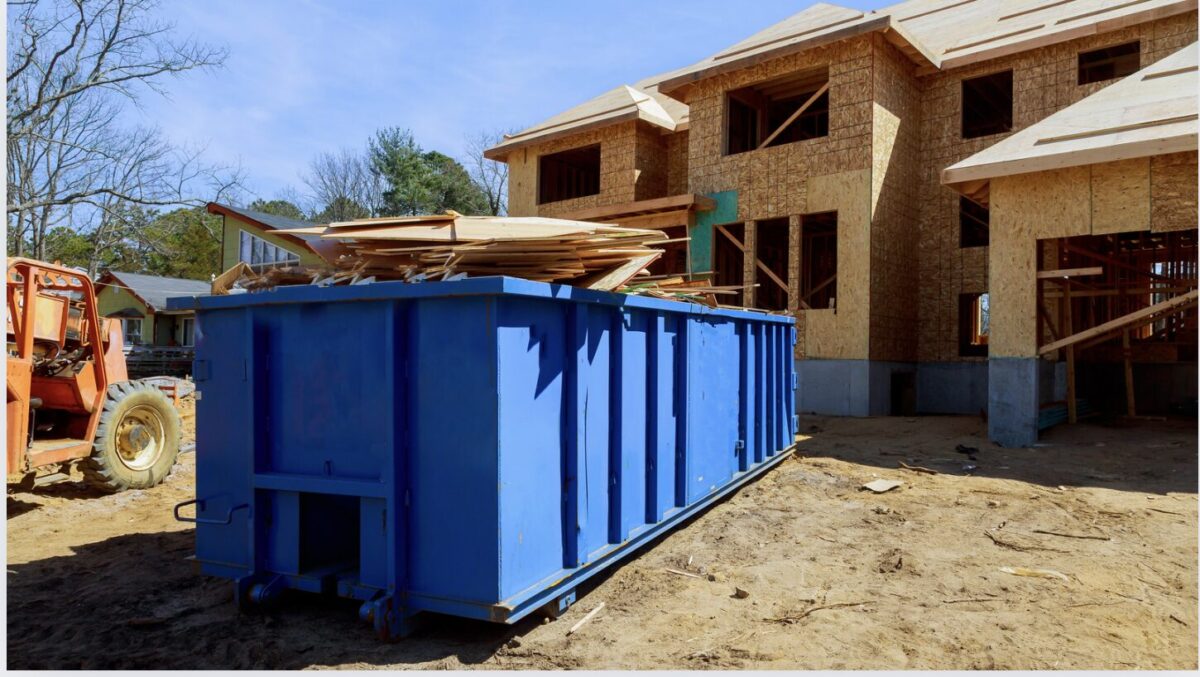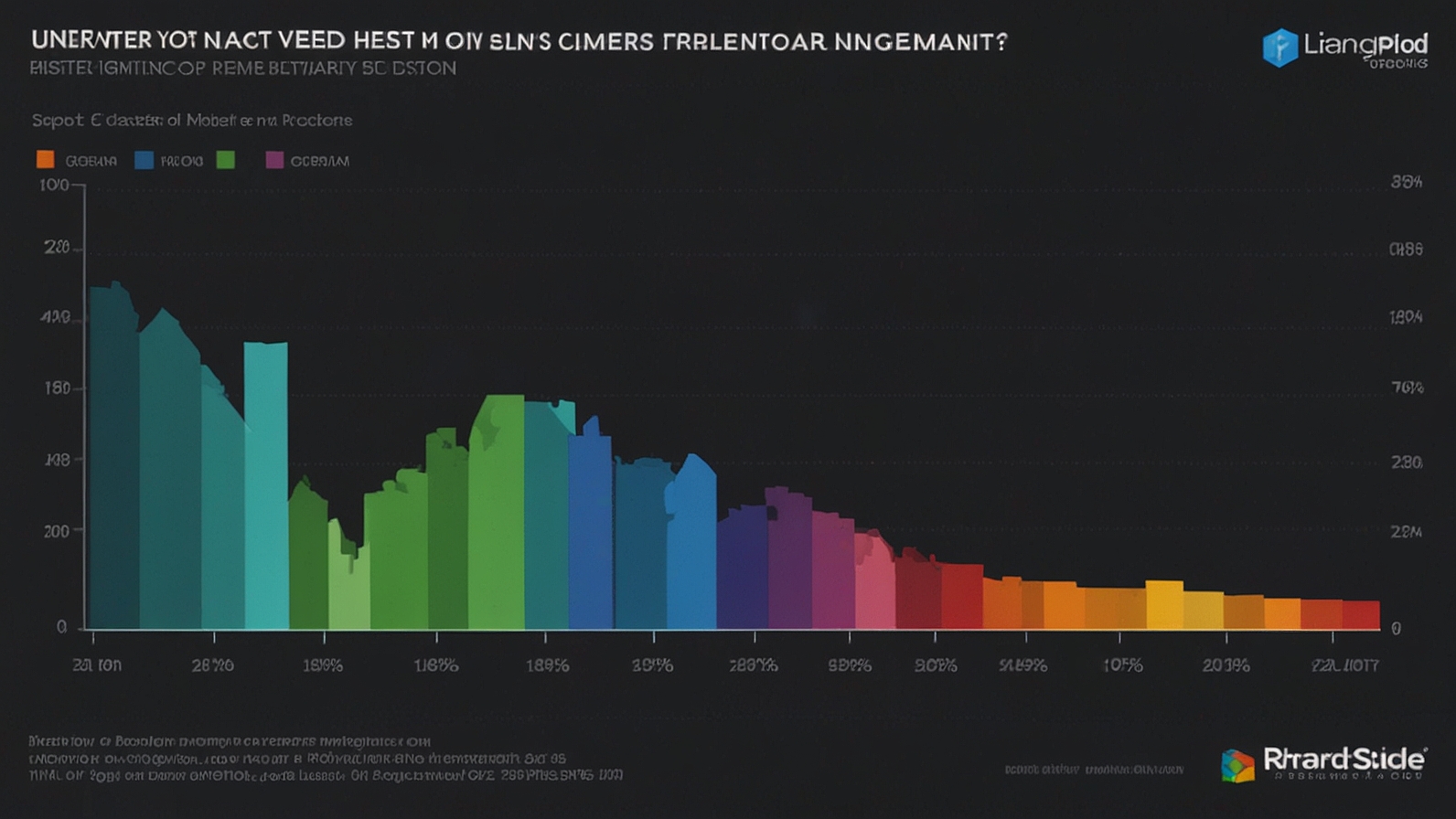Business
Choosing the Right Dumpster Size for Your Commercial Project

Introduction: The Importance of Proper Waste Management in Commercial Projects
Commercial projects, whether they involve construction, renovation, or large-scale cleanouts, generate a substantial amount of waste. Proper waste management is crucial to keep the project on track and ensure compliance with environmental regulations. One of the key decisions in managing this waste is choosing the right size dumpster. Selecting a dumpster that’s too small can lead to delays and additional costs, while an oversized dumpster may result in unnecessary expenses.
Whether you’re working on a small office renovation or a large construction project, the right dumpster size can help keep your project on schedule, within budget, and compliant with regulations. With the support of professional services like those offered by TX Dumpsters R Us, you can manage your project’s waste effectively, allowing you to focus on what matters most—completing your project successfully.
This article provides a guide to selecting the ideal dumpster size for your commercial project, helping you maximize efficiency and minimize costs.
Understanding the Scope of Your Project
Assessing the Volume of Waste
The first step in choosing the right dumpster size is to accurately assess the volume of waste your project will generate. This requires a thorough understanding of the project scope and the types of materials that will be disposed of.
Key Factors to Consider:
- Type of Project: Different types of commercial projects generate varying amounts of waste. For example, a complete office renovation might produce a mix of old furniture, drywall, and flooring, while a construction site might generate large quantities of concrete, metal, and wood.
- Materials Involved: The materials being disposed of will impact the dumpster size you need. Heavy materials like concrete and bricks take up less space but weigh more, which could affect the dumpster size and the disposal cost.
- Project Duration: Consider how long the project will last and whether waste will be generated continuously or in phases. A project that produces waste steadily over time might benefit from a larger dumpster or multiple pickups, while a short-term project might only need a smaller dumpster for a brief period.
Estimating Waste Volume
Once you have a clear understanding of the project scope and materials, the next step is to estimate the total volume of waste. This can help you choose a dumpster that is neither too small nor excessively large.
Estimating Tips:
- Use Project Plans: Review your project plans and specifications to estimate the amount of waste each phase will produce. For instance, demolition work generally generates more waste than the construction of new features.
- Consult with Contractors: If you’re working with contractors, ask for their input on waste volume. Experienced professionals can provide valuable insights based on similar projects they’ve completed in the past.
- Volume Conversion: Waste volume is typically measured in cubic yards. To estimate the number of cubic yards you’ll need, consider the dimensions of the materials and the total number of items being discarded. For example, a small room full of old office furniture might take up 5-10 cubic yards of space.
Common Dumpster Sizes and Their Applications
Small Dumpsters (10-15 Yards)
Small dumpsters, typically ranging from 10 to 15 cubic yards, are ideal for commercial projects that generate a moderate amount of waste. They are often used for smaller renovation projects, cleanouts, or when space is limited.
Applications for Small Dumpsters:
- Office Cleanouts: If you’re clearing out old office furniture, files, and equipment, a 10-15 yard dumpster should be sufficient. This size is perfect for projects involving one or two rooms.
- Small Renovations: For minor renovations, such as updating a few offices or a small retail space, a smaller dumpster can handle the debris without taking up too much space on-site.
- Landscaping Projects: Small dumpsters are also suitable for commercial landscaping projects that involve removing plants, shrubs, and small amounts of soil or mulch.
Medium Dumpsters (20-30 Yards)
Medium-sized dumpsters, ranging from 20 to 30 cubic yards, are versatile and can accommodate a wide range of commercial projects. They are large enough to handle significant waste but still compact enough for most job sites.
Applications for Medium Dumpsters:
- Retail Renovations: If you’re remodeling a retail store, a 20-30 yard dumpster can handle the waste from flooring, shelving, and display fixtures. This size is also suitable for disposing of packaging materials from new inventory.
- Small Construction Projects: Medium dumpsters are ideal for smaller construction projects, such as building additions or new installations. They can accommodate construction debris like wood, metal, and drywall.
- Apartment Cleanouts: For multi-unit cleanouts, such as apartment complexes, a medium-sized dumpster provides enough capacity to dispose of old furniture, appliances, and general trash from multiple units.
Large Dumpsters (40 Yards)
For large-scale commercial projects, a 40-yard dumpster is often the best choice. These dumpsters are designed to handle high volumes of waste, making them suitable for major construction, demolition, or extensive renovation projects.
Applications for Large Dumpsters:
- Construction and Demolition: Large dumpsters are essential for construction and demolition projects that produce a vast amount of waste, including concrete, brick, metal, and large pieces of debris. They ensure that all waste is contained and managed efficiently.
- Industrial Cleanouts: When clearing out industrial facilities or warehouses, a 40-yard dumpster can accommodate large items such as machinery, pallets, and bulk materials. This size is also useful for disposing of heavy materials that require more space.
- Extensive Renovations: For major renovations involving multiple floors or large commercial buildings, a large dumpster provides the capacity needed to handle significant amounts of waste without frequent emptying.
Tips for Selecting the Right Dumpster Size
Consider Project Location and Accessibility
When choosing a dumpster size, it’s essential to consider the location of your project and the accessibility of the site. Some locations may have space constraints or require specific permits for dumpster placement.
Location Considerations:
- Space Availability: Ensure that there is enough space on-site to accommodate the dumpster size you choose. Tight spaces may require a smaller dumpster or careful placement to avoid obstructing work areas or access points.
- Permit Requirements: In some areas, placing a dumpster on the street or in public areas requires a permit. Check with local authorities to ensure compliance and avoid potential fines or delays.
- Ease of Access: The dumpster should be placed in a location that is easily accessible to workers. This reduces the time and effort required to dispose of waste and keeps the project moving efficiently.
Plan for Waste Management Needs
Effective waste management involves more than just choosing the right dumpster size. It also requires planning for how the dumpster will be used throughout the project.
Waste Management Planning:
- Schedule Regular Pickups: For long-term projects, schedule regular pickups to avoid overfilling the dumpster. This ensures that waste is removed promptly and prevents delays caused by a lack of disposal capacity.
- Separate Waste Materials: If your project generates different types of waste (e.g., recyclables, hazardous materials), consider using separate dumpsters or clearly labeling waste for proper disposal. This helps ensure compliance with environmental regulations and supports recycling efforts.
- Monitor Waste Levels: Regularly monitor the dumpster’s fill level to avoid overloading. Overloaded dumpsters can pose safety risks and may incur additional fees. Plan for an additional dumpster if needed to accommodate excess waste.
Conclusion: Making the Right Choice for Your Commercial Project
Choosing the right dumpster size is crucial for the success of your commercial project. By understanding your project’s scope, estimating the volume of waste, and considering the specific needs of your site, you can select a dumpster that ensures efficient waste management.
Business
Avoidable errors in long-distance office moves

Long-distance office relocations require careful planning, logistics, and coordination. As with planning any event, mistakes are unavoidable, and in this case even minor errors can escalate into major problems that are difficult or costly to fix once the move is underway.
While many challenges are inherent to moving operations, several mistakes can be prevented through careful preparation and professional oversight https://bestmovescalgary.ca/long-distance-moving-services/. To better prepare for the relocation it is better to keep in mind these avoidable mistakes:
- Failing to catalog office equipment, furniture, and supplies accurately can result in lost items, missing parts, or duplicate shipments. This issue is particularly problematic when sensitive technology, specialized furniture, or essential documents are involved. Creating a complete, detailed inventory before the move allows movers and managers to track every item, reducing the risk of permanent loss or replacement costs.
- Computers, servers, and audiovisual equipment should be packed properly as they are highly sensitive to shock, temperature fluctuations, and moisture. Using inappropriate packing materials or skipping protective measures can result in hardware failure, data loss, or costly repairs. Professional movers mitigate these risks by supplying specialized crates, anti-static packaging, and cushioning techniques designed specifically for delicate office technology.
- Disorganization of critical documents also presents major challenges. Legal files, financial records, and personnel information often require secure, labeled, and traceable transport. Failing to properly classify and store these documents can result in misplaced documents, unauthorized access, or delays in reestablishing operational functionality. Advance planning, including the use of secure containers and digital tracking systems, can help prevent these issues entirely.
- Long-distance moves often require navigating unfamiliar highways, bridges, and urban streets. Trucks may encounter low clearance, narrow passages, or weight restrictions. Without pre-assessment and route optimization, vehicles may be delayed or forced to take a different route, which adds time and cost. Selecting a route based on truck dimensions and traffic patterns is a preventive measure that avoids such complications.
- Errors in furniture disassembly and reassembly are also difficult to rectify. Modular office furniture, cubicles, and conference tables require proper disassembly to prevent structural damage. Incorrect handling may result in warped panels, stripped screws, or compromised stability. Documented procedures and professional handling ensure that items arrive intact and operational at the new location quickly.
- Office relocations can disrupt workflows if insufficient time is allocated for unloading, setting up, and reconnecting technology. Misjudging these timelines can delay business operations for days. To prevent this, detailed scheduling, staged planning, and coordination with movers are required to maintain operational continuity.
Each of these mistakes is largely preventable through foresight, preparation, and the expertise of professional movers. Addressing these issues in advance ensures a smoother, safer, and more efficient long-distance office relocation.
READ ALSO: Moving Services in Melbourne: A Comprehensive Guide
Business
What Are Same-Day Settlement Loans? Everything You Need to Know

When navigating the complexities of a lawsuit, the financial burdens can quickly become overwhelming. Between mounting medical bills, essential living expenses, and the potential loss of income due to time off work, the waiting period for a settlement check can seem interminable and create immense stress. This is precisely where same-day settlement loans offer a vital solution.
If you find yourself in urgent need of rapid access to cash while your legal case is still pending, this comprehensive guide is designed to provide you with all the crucial information you need. We will delve into every aspect of these unique financial tools, from a detailed explanation of how these loans function to an exploration of their significant benefits, and what you can expect throughout the entire process. Our aim is to demystify same-day settlement loans, empowering you with the knowledge to make informed decisions during a challenging time.
What Is a Settlement Loan?
A settlement loan (also known as pre-settlement funding, lawsuit funding, or litigation financing) gives you a cash advance based on the expected value of your pending lawsuit. That means you can get money now to help cover your expenses while your case is still being resolved. Once your case settles or you win in court, you repay the loan from your settlement proceeds.
A settlement loan, often referred to as pre-settlement funding, lawsuit funding, or litigation financing, provides individuals with a crucial financial lifeline in the form of a cash advance. This advance is calculated based on the anticipated value of their pending lawsuit, offering a vital solution during what can often be a protracted and financially challenging legal process.
Advantages
The fundamental advantage of this type of funding is that it enables plaintiffs to access money immediately. This cash infusion can be used to cover a wide array of expenses that inevitably arise while a legal case is still in the process of being resolved. These expenses might include, but are not limited to, daily living costs such as rent or mortgage payments, utility bills, groceries, and transportation. Furthermore, it can help plaintiffs manage medical bills and ongoing treatment costs related to their injuries, especially if their lawsuit stems from a personal injury claim. Without such funding, many plaintiffs might feel pressured to accept a low settlement offer prematurely due to financial duress, even if a larger award is likely with further legal proceedings.
The structure of a settlement loan is designed to align with the outcome of the legal case. Once a settlement is reached, or a favorable judgment is secured in court, the loan is repaid directly from the proceeds of that settlement or award. This arrangement is non-recourse, meaning that if the plaintiff loses their case and receives no settlement or judgment, they are generally not obligated to repay the loan. This characteristic significantly reduces the financial risk for the plaintiff, as the funding company assumes the risk of the lawsuit’s outcome.
In essence, settlement loans empower plaintiffs to navigate the legal system with greater financial stability, allowing their legal teams to pursue the best possible outcome without the added pressure of immediate financial hardship. It ensures that justice is not compromised by economic constraints, providing a bridge between the initiation of a lawsuit and its ultimate resolution.
Common types of cases that may qualify include:
- Personal injury
- Wrongful death
- Slip and fall accidents
- Medical malpractice
- Product liability
Same-Day Settlement Loans vs. Traditional Loans
Unlike traditional bank loans, same-day settlement loans don’t require:
- A credit check
- Proof of income
- Employment verification
Funding decisions are based solely on the strength and estimated value of your case; not your financial history.
Best of all, approval and funding can often happen within hours, not days or weeks.
READ ALSO: Payday Loans and Your Credit Score: Separating Myth from Fact
Why Choose a Pre-Settlement Loan?
A pre-settlement loan can help you cover:
- Medical bills
- Legal fees
- Rent and utilities
- Everyday living expenses
This financial relief allows you and your attorney the time to fight for the maximum settlement, without feeling pressured to accept a low offer just to make ends meet.
Before choosing a lender, take time to compare companies, interest rates, and terms. A reputable lender will offer transparent rates and a free case evaluation before you sign anything.
How Much Does a Lawsuit Loan Cost?
There are no upfront fees or out-of-pocket costs.
The total repayment amount (including interest) is clearly outlined in a non-binding agreement, and payment is only due if you win your case.
What Happens If You Lose Your Case?
If you lose your lawsuit, you generally owe nothing.
That’s because settlement loans are non-recourse, meaning the lender assumes the risk. You only repay if you receive compensation.
Other Benefits of Same-Day Settlement Loans
- No Credit Required: Approval is based on your case, not your credit score.
- Fast Access to Cash: Many applicants receive funding within 24 hours.
- Negotiation Power: You can take the time you need to negotiate a fair settlement — without financial stress dictating your decisions.
How Do Settlement Loans Compare to Payday Loans?
While both options provide quick cash, payday loans often come with extremely high interest rates (sometimes over 400–500% APR). They also require proof of income and must be repaid from your next paycheck; often trapping borrowers in a cycle of debt.
In contrast, lawsuit loans are tied to your case’s outcome, not your income. You don’t repay until you win.
Secured vs. Unsecured Loans
- Secured loans (like auto or home loans) use collateral such as your car or property, which the lender can seize if you fail to pay.
- Unsecured loans have no collateral but often carry higher interest rates, and may involve hidden fees.
Settlement loans are a unique form of unsecured financing that’s risk-free for the borrower because repayment depends solely on your legal win.
Tips for a Successful Lawsuit
- Hire an experienced attorney who specializes in your case type.
- Be patient. Legal cases often take longer than expected.
- Cooperate with your attorney on discovery and document requests.
- Attend settlement conferences to understand your case’s potential value.
- Prepare for depositions and always present yourself professionally in court.
Get Fast Legal Funding Today
If you’re struggling to pay bills while waiting for your settlement, same-day settlement loans can give you the breathing room you need to stay financially stable and focused on your recovery.
Contact us today to learn more about our quick, risk-free settlement funding options. Get the cash you need, when you need it most.
YOU MAY ALSO LIKE: Instant Loans vs. Traditional Loans: Which One Is Right for You?
Business
Unlock Engagement: How Video&a Transforms Business Content

What if you could turn a passive viewer into an active participant with the click of a button? Imagine a potential customer watching your product demo, and right at the moment they wonder about pricing, a subtle prompt appears: “Curious about our plans? Ask now!” They type their question and get an instant, clear answer from the video itself, without ever hitting pause. This isn’t a glimpse into the distant future of marketing; it’s the powerful reality of Video&a, a revolutionary approach that’s redefining how businesses communicate.
Gone are the days of one-way, linear video content. Today’s audiences crave interaction and personalization. They don’t just want to be talked at; they want a conversation. This is where Video&a shines—a dynamic, AI-assisted strategy that embeds interactive Q&A directly into the video experience. It’s like giving every single viewer their own personal guide, making your content more discoverable, memorable, and effective across every touchpoint of your business.
What Exactly Is Video&a? Breaking Down the Buzzword
Let’s demystify this term. At its core, Video&a is a content methodology that integrates interactive question-and-answer functionality within a video player. It uses artificial intelligence to make this process seamless and scalable.
Think of it like this: a standard video is a monologue. It’s a speaker delivering a message to a silent audience. Video&a, however, is a dialogue. It’s a two-way street where the viewer can steer the conversation, digging deeper into the topics that matter most to them, right when their curiosity is piqued.
How It Works in Practice:
A company launches a new software feature and creates a tutorial video. Using a Video&a platform, they can:
- Pre-load common questions: The AI is fed a list of FAQs and their answers beforehand.
- Enable live interaction: Viewers can type questions in a sidebar as they watch.
- Receive instant AI-powered answers: The AI scans the query and instantly either pulls a timestamp from the video that answers it, displays a text answer, or even generates a short spoken response using text-to-speech.
- Create a living FAQ: The system learns from new questions, constantly improving its knowledge base for future viewers.
This transforms a static video into an evergreen, interactive resource that becomes more valuable over time.
Why Your Business Needs to Embrace Interactive Video Now
The data doesn’t lie. Interactive content consistently outperforms passive content. But why is Video&a such a game-changer? The benefits spread across marketing, sales, support, and training.
Skyrocket Engagement and Dwell Time
Search engines, especially Google and YouTube, love content that keeps users engaged. The longer a visitor stays on your page (dwell time), the more favorably algorithms rank your content. Video&a is incredibly effective at this. Instead of clicking away after 30 seconds, viewers are compelled to stay, ask questions, and explore the content more deeply. This sends powerful positive signals to search engines, boosting your organic discoverability.
Dramatically Improve Learning and Retention
For e-learning and internal training, Video&a is a powerhouse. The Ebbinghaus forgetting curve shows we forget most of what we learn within days. Interactive video combats this by transforming learners from passive recipients into active participants. This process of inquiry and immediate feedback reinforces knowledge, dramatically improving information retention and application. It’s the difference between listening to a lecture and having a one-on-one tutoring session.
Scale Personalized Customer Support
Customer support teams are often overwhelmed with repetitive queries. Imagine deflecting a significant portion of these tickets without lifting a finger. A well-built Video&a system integrated into your help center can do just that. A viewer watching a setup guide can ask, “What do I do if the blue light is blinking?” and get an immediate, accurate answer. This provides 24/7 support, reduces ticket volume, and empowers customers to find solutions faster.
Generate Rich Data and Consumer Insights
Every question asked is a priceless data point. Video&a platforms provide analytics that reveal exactly what your audience is curious about, what they’re confused by, and what information is missing from your content. This is pure gold for your product, marketing, and content teams, allowing you to refine your messaging, develop new content, and ultimately build better products that serve your customers’ real needs.
Putting Video&a to Work: Real-World Applications
This strategy isn’t just theoretical; it’s delivering real results for forward-thinking businesses right now.
Marketing & Sales: The Interactive Product Demo
Startup “SaaSify” integrated Video&a into their main product demo video. Instead of a generic tour, viewers could ask specific questions like, “Does this integrate with Slack?” or “Can I see the reporting dashboard?” The AI provided concise answers with clips from other videos that showed exactly that. The result? A 40% increase in demo-to-trial conversion率和 and a significant drop in “basic question” sales calls, allowing their reps to focus on high-value prospects.
E-Learning: The Never-Tiring Teaching Assistant
An online course platform, “LearnSphere,” used Video&a within their lesson videos. Students could ask for clarifications on complex topics without interrupting the flow of the lesson. The platform found that courses with interactive Q&A saw completion rates jump by 60% and final exam scores improve by an average of 25%. The instructors also used the question log to identify tricky concepts and create new supplemental mini-lessons.
Customer Support: The 24/7 Answer Engine
“GadgetGenius,” a consumer electronics company, embedded Video&a into their troubleshooting video library. Customers could describe their issue in their own words and be guided to the exact moment in a video that solved it. This led to a 35% reduction in support tickets related to common setup issues and a marked improvement in customer satisfaction scores, as users appreciated the instant, helpful support.
Your Roadmap to Implementing Video&a (Without the Overwhelm)
Getting started with this strategy is more accessible than you might think. You don’t need a Hollywood production studio or a team of AI engineers.
1. Start with Your Most Valuable Content
Audit your existing video library. Which video answers the most common questions? Which one has the highest traffic? Which one generates the most support tickets? Your best-performing “hero” content or your most-viewed tutorial is the perfect candidate for a Video&a makeover. Repurposing existing content is the most efficient way to start.
2. Choose the Right Tool for Your Needs
The market for interactive video tools is growing rapidly. Look for platforms that offer:
- Easy integration with your website (often just a snippet of code).
- AI capabilities that can handle natural language questions.
- Strong analytics to track questions, engagement, and performance.
- A user-friendly interface for you to input questions and answers.
3. Build Your Knowledge Base
This is the most crucial step. Work with your sales, support, and product teams to compile a list of every Frequently Asked Question they receive. Write clear, concise answers for each one. For longer videos, you can even timestamp specific sections that answer common questions. The richer your initial knowledge base, the smarter your Video&a experience will be from day one.
4. Promote and Iterate
Once your first interactive video is live, promote it! Let your audience know they can now “ask questions directly within the video.” Monitor the questions that come in. You’ll quickly see what’s working and what’s missing. Use these insights to continually update and expand your Q&A database, making the system smarter and more effective every week.
3 Actionable Tips to Try Today
Ready to dip your toes in the water? Here’s how to start immediately.
- Audit One Key Video: Pick one high-value tutorial or demo video. List the top 5 questions a viewer might have at specific timestamps.
- Script Simple Answers: Write friendly, one-sentence answers to those questions. Avoid jargon.
- Explore One Tool: Spend 30 minutes researching a single Video&a platform (many offer free trials or demos). See how easy it is to upload a video and input your Q&As.
The Future of Content is a Conversation
Video&a represents a fundamental shift from broadcast to conversation. It’s a strategy that respects the viewer’s intelligence and curiosity, providing value on their terms. By meeting your audience where they are and answering their questions in the moment, you build trust, authority, and lasting engagement. In a crowded digital world, that’s the ultimate competitive advantage.
The question is no longer if interactive video is valuable, but how quickly you can implement it to start reaping the rewards. What’s the first question you’d want your customers to be able to ask?
Share your thoughts and ideas in the comments below!
You May Also Read: The Silent Shift: How Lillienu is Rewriting the Rules of Business Operations
FAQs
Q: Is Video&a expensive and technically difficult to implement?
A: Not necessarily! Many modern SaaS platforms are designed for marketers and content creators, not developers. They often work on a subscription model and can be integrated with a simple copy-paste of code, similar to adding a YouTube video to your site.
Q: Will AI answers feel robotic and turn viewers off?
A: This is a common concern. The key is in the setup. You train the AI with your own brand’s voice and tone. By writing answers that sound human and helpful—and using features that link to specific video clips—the experience feels incredibly responsive and personal, not robotic.
Q: Can Video&a work with live video streams?
A: Absolutely. Many platforms offer live stream integration, allowing moderators to answer questions in real-time during a webcast or live event. This combines the power of live engagement with the organized structure of a Q&A.
Q: What kind of videos work best for this approach?
A: Tutorials, how-to guides, product demos, training modules, and recorded webinars are all perfect candidates. Any video designed to explain or teach something is ideal for an interactive Q&A layer.
Q: How does this affect video SEO?
A: It significantly boosts it. The increased dwell time, lower bounce rates, and user engagement are all strong positive ranking factors. Furthermore, the text-based Q&A creates a rich layer of keyword-rich content that search engines can crawl, making your video discoverable for even more questions.
-

 Education1 year ago
Education1 year agoMastering Excel: Your Comprehensive Guide To Spreadsheets And Data Analysis
-

 Tech1 year ago
Tech1 year agoHow To Choose The Best Forex Trading Broker?
-

 Business2 years ago
Business2 years agoExploring the Rental Market: Properties for Rent in Malta
-

 Blog1 year ago
Blog1 year agoArab MMA Fighters Shine Bright: Meet the Champions of PFL MENA
-

 Travel1 year ago
Travel1 year agoExperience the Best Desert Safari Dubai Offers!
-

 How-To Guides2 years ago
How-To Guides2 years agoComprehensive Guide to Cockwarming: Enhancing Intimacy and Connection
-

 Home Improvement2 years ago
Home Improvement2 years agoEco-Friendly Round Rug Options for Sustainable Living in NZ
-

 Fashion2 years ago
Fashion2 years agoBlack Magic: The Elegance and Sophistication of Ultimate Homecoming Dresses in Black


